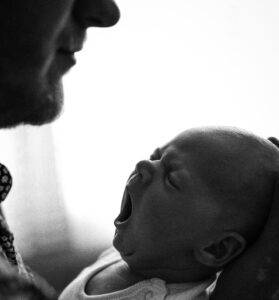Welcoming a newborn into the world is a special time. As a parent, you might be preoccupied with your baby’s feeding, diapers, clothing, and the excitement of knowing your baby’s unique personality. However, a critical step in those early days that every parent should be aware of is the conduct of newborn screenings.
Newborn screenings are simple yet powerful tests that ensure babies are healthy and underlying medical issues are caught early, giving children the best possible start in life. This article will explore why newborn screenings are essential, what conditions these can detect, how the testing process works, and how early intervention makes a life-altering difference. By understanding their importance, you take the necessary steps to ensure your baby’s health is thoroughly protected from the beginning.
What Are Newborn Screenings?
Newborn screenings refer to tests performed within the first few days of a baby’s life, typically before the baby leaves the hospital. These tests are designed to detect genetic, metabolic, hormonal, and functional disorders that may not be obvious at birth but can cause significant harm if left undiagnosed and untreated.
The medical conditions these newborn screenings uncover are often rare, but catching them early is crucial. Early detection allows doctors to begin treatments or interventions that prevent severe health issues, including developmental delays, physical disabilities, and even death. Each condition that newborn screening targets causes lifelong harm if it goes unnoticed. However, thanks to advancements in medicine and technology, early treatment leads to much better health outcomes for children.
The Critical Role of Newborn Screenings in Early Detection
1. Preventing Severe Illnesses Early
One of the most important reasons for newborn screenings is that many conditions, if untreated, lead to irreversible harm. Conditions like phenylketonuria (PKU) and congenital hypothyroidism (CH) are two examples where the window for intervention is relatively short.
PKU, for instance, can lead to brain damage and intellectual disabilities if not treated soon after birth. The solution, once detected, is simple: a specialized diet that prevents these severe complications. Similarly, congenital hypothyroidism, which results from an underactive thyroid, is managed effectively with hormone replacement therapy when detected early, preventing serious developmental delays.
2. Reducing the Risk of Life-Threatening Conditions
Some conditions detected through newborn screening are fatal if not identified in time. Metabolic disorders like maple syrup urine disease (MSUD), which affects the body’s ability to break down certain amino acids, cause life-threatening episodes if not treated. However, early diagnosis enables doctors to place the baby on a specialized diet that mitigates the risks.
Sickle cell disease is another condition in which early treatment prevents crises such as infections and stroke. Babies diagnosed with this blood disorder are given antibiotics early to ward off infections, which helps prevent severe complications in their early years.
3. Supporting Normal Development
Aside from life-threatening conditions, some disorders detected through newborn screenings impact a baby’s long-term development if left untreated. Hearing loss, for example, goes unnoticed for months or even years if not screened early on.
With no intervention, hearing loss delays speech and language development, which may affect a child’s ability to communicate and interact with others. By detecting hearing issues shortly after birth, doctors begin interventions like hearing aids or cochlear implants that allow babies to develop speech and language skills within a timeframe.
4. Building a Foundation for Lifelong Health
When a newborn is diagnosed with a condition during newborn screening, it makes parents anxious or overwhelmed. The reality is that diagnosis through newborn screenings drastically alters the trajectory of a baby’s health. For many conditions, early treatment leads to the child living a near-normal or entirely normal life. In many cases, when the child reaches school age, they grow and develop like their peers, with few or no lingering effects of their early diagnosis.
Common Conditions Detected Through Newborn Screenings
Newborn screening tests are essential because they uncover rare conditions that may otherwise go undetected. Below, we’ll explore some of the most common conditions that newborn screenings can identify, explaining their significance and the benefits of early intervention.
1. Phenylketonuria (PKU)
Phenylketonuria is a genetic disorder that prevents the body from properly breaking down phenylalanine, an amino acid in many foods. If phenylalanine builds up in the body, it may cause intellectual disabilities, brain damage, and other serious health problems.
Without newborn screenings, PKU might not be diagnosed until developmental delays are evident. However, with early diagnosis, children with PKU avoid these problems by following a strict, low-phenylalanine diet. Early dietary interventions are effective and many children with PKU grow up without any significant health issues.
2. Congenital Hypothyroidism (CH)
Congenital hypothyroidism occurs when a baby’s thyroid gland does not produce enough thyroid hormone, which is critical for normal brain development and growth. Babies born with CH appear healthy at first, but without early treatment, they develop serious cognitive delays and growth issues. Fortunately, if CH is detected early, babies are treated with a daily dose of synthetic thyroid hormone, allowing them to grow and develop normally.
3. Sickle Cell Disease
Sickle cell disease is a genetic disorder that affects red blood cells, causing them to become misshapen. These sickle-shaped cells lead to blocked blood flow, pain crises, infections, and organ damage. Early detection of sickle cell disease allows for proactive care, including regular check-ups, vaccines, and medications to prevent infections. Babies with sickle cell disease are placed on antibiotics shortly after birth to reduce their risk of serious bacterial infections, which are a common complication.
4. Cystic Fibrosis (CF)
Cystic fibrosis is a genetic disorder that affects the lungs and digestive system. It causes thick, sticky mucus to build up in the lungs, leading to respiratory infections, and in the digestive system, interfering with nutrient absorption. Early diagnosis of CF through newborn screening allows doctors to implement treatments such as airway clearance techniques and enzymes to help with digestion early in life. With proper treatment, many children with CF live longer and healthier lives than in previous generations.
5. Hearing Loss
Hearing screening is now a standard of the newborn screening process. Babies with hearing loss may not be evident at birth, but early detection prevents speech and language delays. If hearing loss is identified early, interventions such as hearing aids, cochlear implants, or speech therapy are introduced during the critical early months when babies learn to communicate.
Studies have shown that children who receive early interventions for hearing loss have significantly better language outcomes than those diagnosed later.
6. Severe Combined Immunodeficiency (SCID)
Severe Combined Immunodeficiency, also known as SCID or “bubble boy disease,” is a genetic disorder that affects the immune system, leaving babies vulnerable to infections. Without a functioning immune system, even minor illnesses become life-threatening. Newborn screening for SCID allows doctors to identify babies with the condition before they get sick. These babies receive a bone marrow transplant or gene therapy to restore their immune system and protect them from infections.
7. Maple Syrup Urine Disease (MSUD)
MSUD is a rare genetic disorder that affects the body’s ability to break down certain amino acids found in proteins. If not managed, it leads to severe neurological damage and even death. MSUD gets its name from the sweet-smelling urine of affected individuals. Early diagnosis through newborn screening allows doctors to implement a special diet to prevent the toxic buildup of amino acids, protecting the baby from harmful consequences.
8. Critical Congenital Heart Defects (CCHDs)
Critical congenital heart defects are a group of serious heart conditions present at birth that affect the heart’s structure and function. Some of these defects may not show symptoms immediately, making early detection crucial. Pulse oximetry, a simple and painless test, detects low oxygen levels in the blood, which may indicate a heart defect. Once identified, doctors quickly determine the best course of treatment, which may include surgery or medication to manage the condition and prevent complications.
How Are Newborn Screenings Performed?
Newborn screening tests are simple, safe, and generally performed within the first 24 to 48 hours of life. While specific tests vary slightly depending on your location, the core components of newborn screening include:
- Heel Prick Test (Blood Test): The heel prick test is the most common method. A small needle pricks the baby’s heel, and blood is collected on a special card. This blood sample is sent to a laboratory, where it’s tested for genetic, metabolic, and hormonal conditions. This test is performed within 48 hours of birth and healthcare providers detect conditions that need immediate attention.
- Hearing Screening: Newborn hearing screening is a quick, painless test that identifies hearing issues that interfere with language development. The test involves placing a small earphone or sensor in the baby’s ear while asleep. The device plays a series of sounds, and the baby’s response to these sounds is measured. If there’s no response, further testing is needed to confirm hearing loss.
- Pulse Oximetry: Pulse oximetry checks a baby’s oxygen levels and detects congenital heart defects, which may not be apparent at birth. A small sensor is placed on the baby’s skin, usually on the foot or hand, and it measures how much oxygen is in the baby’s blood. Low oxygen levels indicate a heart problem that requires immediate intervention.
What Happens If a Screening Test Comes Back Positive?
A positive newborn screening result doesn’t necessarily mean a baby has a specific condition. Instead, additional testing is needed to confirm or rule out the diagnosis. Healthcare providers contact parents if a test is positive, and further testing will be arranged as soon as possible. In many cases, follow-up tests show the baby is healthy. However, if a condition is confirmed, early diagnosis allows treatment to begin.
Follow-Up Care and Treatment
If a baby is diagnosed with a condition through newborn screening, the next steps will depend on the specific diagnosis. For metabolic disorders, dietary changes are necessary. For hormonal disorders, medications replace the missing hormones. If hearing loss is detected, hearing aids or other therapies are introduced early. In all cases, the goal is to prevent complications and give the baby the best chance for a healthy, happy life.
Your Role as a Parent in Newborn Screenings
For parents, your role in your baby’s newborn screenings is vital. Ask questions or get clarifications from healthcare professionals. Follow up on the results and ensure necessary treatments are started promptly. Stay informed about specific conditions in your state’s newborn screening program, as these vary.
Talk to your pediatrician if you have concerns or questions about the screening process. If your family has a history of certain genetic conditions, ensure your healthcare provider is informed since this can influence the screening process or prompt additional testing.
Prioritize Newborn Screenings for Your Peace of Mind
Newborn screenings are a crucial part of modern healthcare and offer a simple yet effective way to protect babies from potentially life-threatening or lifelong health conditions. While most babies are born healthy, these tests provide reassurance by checking for rare but serious conditions that can be treated if caught early.
For many parents, these screenings provide peace of mind, knowing their baby’s health is thoroughly checked during those critical first days of life. This underscores the importance of newborn screenings and following through with the results. The benefits of early detection cannot be overstated—it can mean the difference between a healthy childhood and lifelong health challenges. By catching serious health issues early, newborn screenings offer babies a head start and a chance at a healthy and fulfilling future.
If you’re expecting or have recently welcomed a new baby, ask your healthcare provider about newborn screenings offered in your area and what steps to take if follow-up testing is needed. The right care at the right time makes a difference in your baby’s health and development.
For more information about newborn health, check out Omegapediatrics.com, where you can find additional resources. These articles offer valuable insights into keeping your baby healthy in the crucial first months.
My Baby Has Black Poop: Act Quickly to These 3 Signs and How to Handle 10 Common Newborn Issues: A Comprehensive Guide for New Parents







